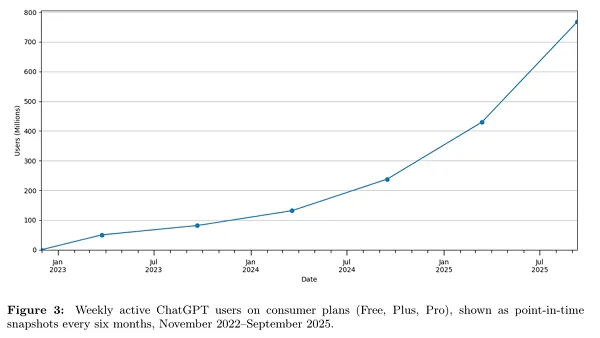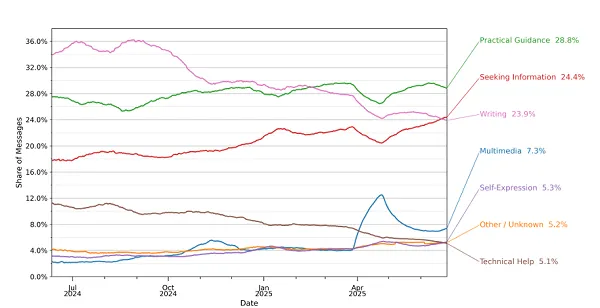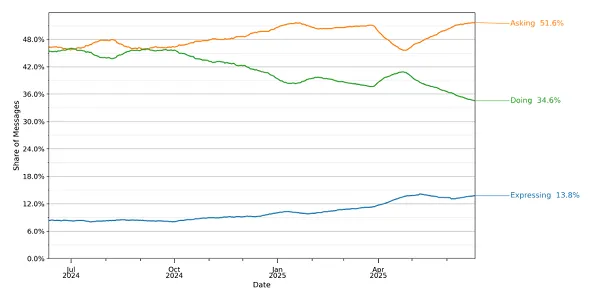OpenAI has published a new overview of how people are using ChatGPT, and how usage of its conversational AI tool is evolving over time, which provides some interesting insight into what people are looking to use the tool for, and how that relates to broader trends.
The study is based on an analysis of 1.5 million conversations in the app over the last three years, providing a huge pool of usage data to determine key trends.
You can download the full report for yourself here, but in this post, we’ll take a look at some of the key notes.
First off, the report looks at the overall growth in usage of ChatGPT, which has risen from a million active users in late 2022, to 700 million weekly active users today.

That’s no surprise, with ChatGPT quickly becoming synonymous with AI usage in general, driving more and more interest in the tool.
The data also shows that the majority (70%) of ChatGPT conversations are not work-related (based on OpenAI’s categorization), though both work and personal discussions are rising over time.
As per the report:
“The three most common Conversation Topics are Practical Guidance, Seeking Information, and Writing, collectively accounting for about 77% of all ChatGPT conversations. Practical Guidance has remained constant at roughly 29% of overall usage. Writing has declined from 36% of all usage in July 2024 to 24% a year later. Seeking Information has grown from 14% to 24% of all usage over the same period.”

For clarity, “Practical Guidance” in this context relates to how-to advice, tutoring or teaching, while “Seeking information” encompasses specific informational queries, product insights and recipes, among others.
It’s interesting to note the change in these trends over time, and how ChatGPT is rising as an alternative to Google for search and discovery.
The report also looks at the different purposes of ChatGPT usage, splitting the various queries into either:
- Asking – Seeking information to help make better decisions
- Doing – Getting ChatGPT to perform tasks for you (e.g. writing an email, writing code)
- Expressing – Uses that are neither asking nor doing, usually involving personal reflection

As you can see in this chart, people are looking to get ChatGPT to undertake tasks on their behalf less over time, with information seeking being the most common usage.
It’s interesting to consider how ChatGPT is assisting people with their discovery and decision-making processes, which is likely reflective of AI tools more broadly, and how people are looking to utilize AI companions in different applications.
Does this mean that AI tools are not as popular for, say, writing as many anticipated? And if more people are looking to ChatGPT to give them guidance on how they think, what does that mean for critical thought, and how such tools might shape opinions?
Some interesting considerations stemming from these latest usage stats.
You can download OpenAI’s “How People Are Using ChatGPT” report here.


